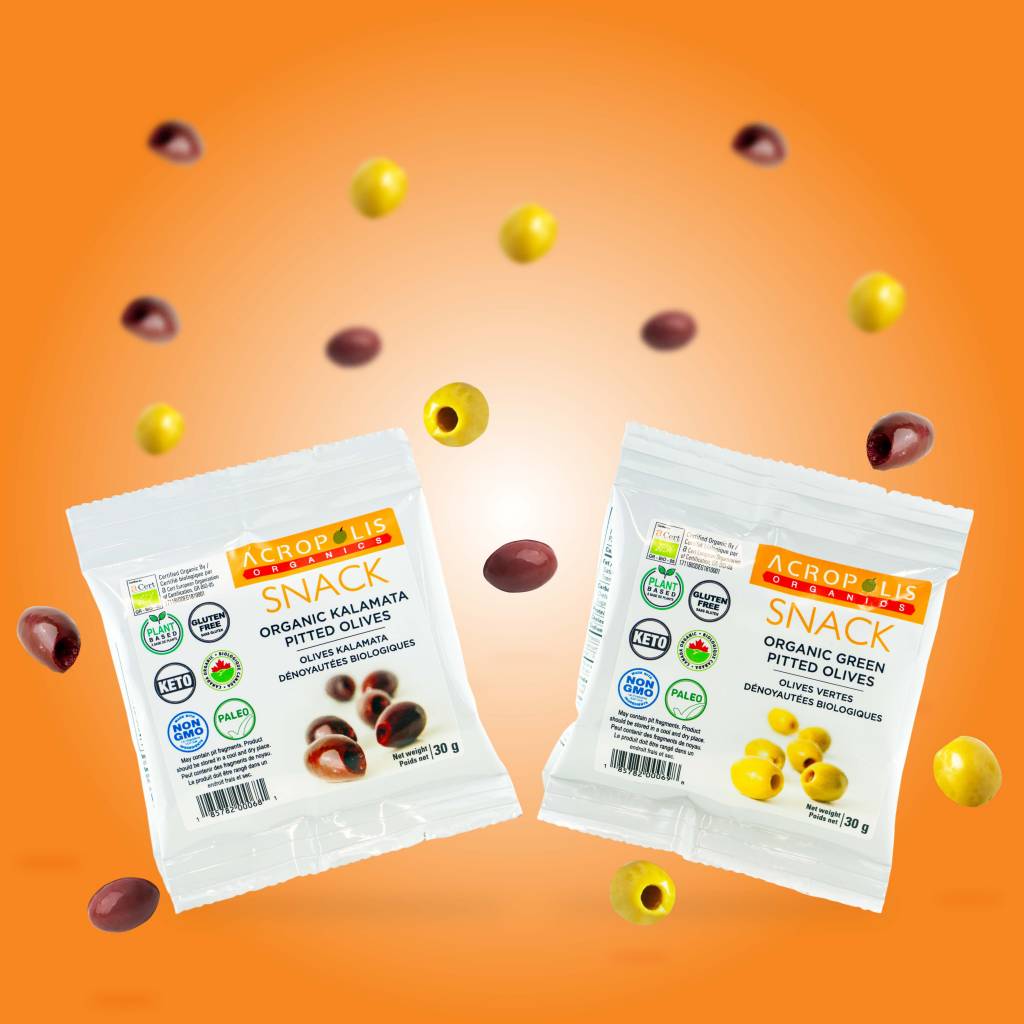
Table of Contents
Facilities & Certification
Extra Virgin Olive Oil: Yes, tree nut free.
Vinegars: Yes, tree nut free.
Olives: No.
Our facilities, manufacturing and warehousing have the following certifications and designations:
- Extra Virgin Olive Oil: Our Olive Oil milling/producing/ bottling facility has the HACCP Food Management System Standard (EN ISO 22000:2005)
- Extra Virgin Organic Olive Oil: Our organic olive oil products are certified by BIOHellas, a national inspection and certification body for organic products and member of IFOAM, in recognition of their compliance to the requirements of the European Community regulations 834/2007 and 889/2008.
- PDO &PGI: Our products of Protected Designation of Origin (PDO) and Protected Geographical Indication (PGI) have been certified by AGROCERT, the premier national organization for certification and inspection of agricultural products.
- Production & Standardization: Every step of production is standardized according to the standards issued by the international Food Safety management system requirements by TÜV AUSTRIA HELLAS EN ISO 22000:2005.
- Bottling & Packaging: Every step of bottling and packaging is standardized according to the standards issued by the international Food Safety management system requirements by TÜV AUSTRIA HELLAS EN ISO 22000:2005.
- Kosher – כָּשֵׁר Our products are kosher certified. This means that our products fully comply with the strict standards required by the Jewish dietary laws (Kashrut, כַּשְׁרוּת).
Olives:
The plant has the HACCP Food Management System Standard (EN ISO 22000:2005) and is also Certified Organic by Geotechnical Laboratories S.A. GR-Bio-08.
Vinegars:
The plant is also HACCP certified and is certified organic by BIO HELLAS
Content
Product Quality
The “Best Before Date” on our products is labelled as follows: Day / Month / Year.
EVOO – “Best Before Date” is found on bottom front label.
All other products – “Best Before Date” is found on bottom back label.
Separation occurs naturally. Gently shake the bottle before using.
Olives
Raw or fresh olives are naturally very bitter. To make them palatable, olives must be cured and fermented.
Table olives are commonly cured with lye as it is an expedient method and takes only a few days.
We do not use any caustic lye to speed up our curing process.
Our olives are picked at the peak of freshness and cured for a period of five to six months with brine. Our curing methods involve a fermentation which renders probiotic qualities.
Kalamata Olives: 8% salt, 5‰ lactic acid (which is a natural byproduct of olive fermentation), and 2% vinegar
Green Olives: 8% salt, 5‰ citric acid and 2% vinegar
Yes, olives are a probiotic food! Due to the fermentation process, olives provide gut-friendly bacteria.
We do not add any preservatives or colour agents to our olives. Our olives are 100% organic and natural.
If sodium intake is a concern, we recommend soaking the olives in water to remove salt, prior to consuming.
Soak the olives and drain the water several times. If you are not consuming immediately, after the olives have been desalted, place olives back into the jar and top with olive oil to maintain freshness for a few days.
An average serving size of is 15g, approximately 4-5 olives, and they are typically 7 to 8 calories each. Olives do not contain sugar, preservatives, or additives.
Olive Oil
Olive oil naturally solidifies at cold temperatures. At about 45°F-50°F, the olive oil can begin to solidify, making it look cloudy or crystalized. At approximately 10°F (or -12°C), the olive oil will freeze and solidify.
Chilling or freezing olive oil does not affect the quality—it will return to its normal consistency after warming to room temperature.
Heat, direct sunlight, and exposure to air speed up the aging process of olive oil. Keeping your oil next to the stove or by a window in a clear bottle is not recommended.
To maintain the quality of your olive oil, keep a large container in a dark, cool cupboard and pour a small amount into a dark dispenser for everyday use.
Our fresh organic oils, milled with fresh organic lemons and mandarins, can be used with:
- Fish
- Salad marinades
- Chicken marinades
- Desserts
- Steamed vegetables
Smoke Point: When cooking with olive oil, it is important that the oil is not heated over its smoke point (also referred to as smoking point). The smoke point is the temperature at which a cooking fat or oil begins to break down. The oil smokes or burns, giving food an unpleasant taste.
The smoke point of oil varies with its quality. High quality extra virgin olive oils have a high smoke point, roughly between 400°F and 365ºF (204°C and 185ºC) depending on the free fatty acid content.
Frying: When heated, olive oil is a stable fat, which means it stands up well to high frying temperatures. The digestibility of olive oil is not affected when it is heated, even when it is re-used several times for frying.
It is a myth that cooking with olive oil diminishes the nutritional value of the food. This is false. The fact is that heating ANY food will break down its nutritional value.
It is not the cooking oil itself that breaks down nutritional value of food, but the high heat of frying the food in oil.
Cooking food in moderate heat such as steaming is better than frying. Eating vegetables raw better preserves nutritional value than any method of cooking.
Drizzle olive oil to lightly steamed or raw vegetables to add flavour.
Quality Assurance & Harvest
We take great pride in being completely transparent about our production methods.
Designation of Origin: Each bottle of olive oil we produce includes the Designation of Origin symbol, which states the extensive chemical analysis of the product as well as the village, city, olive variety. Unlike other, generic brands, this means that each of our bottles of olive oil can be traced back to its source of origin.
This is as close as you can get to growing the olive trees yourself!
Fresh, Grassy Aroma: An indication of an authentic EVOO is the unmistakable aroma of fresh grass finished with sweet, peppery notes. A “sniff test” is a quick way to verify your bottle of EVOO is authentic.
.
The King of Olives: Acropolis Organics goes to great lengths to preserve the mono-cultivar value of our oil. Our olive oil is from one variety of olives, the “Koroneiki” variety, also known as the king of olives.
Pure & Never Blended: Acropolis Olive Oil is never blended with other oils or with chlorophyll to artificially enhance its colour or beta-carotene to mask the flavour of the blended oils.
This singular approach ensures that our customers are getting pure, genuine, fresh olive oil from a reliable source and from a limited harvest.
Harvest season can run from October to February of each year. Once the olives are handpicked from the trees, they are brought to the mill located on our estate right away.
Our olive oil is produced in one mill on our family estate in Crete, Greece, from one variety of olives – the Koroneiki variety—which is known for its exquisite taste.
Our olive oil is produced using Bio-Harvest agriculture- without the use of chemicals or blending.
Bioharvest Farming
Bio-Harvest farming is a holistic approach to farming. We do not use any chemicals, pesticides, or industrial farming methods.
Some of the steps we take to ensure the quality of our soil include:
- We use holistic pest control without the use of chemicals and pesticides.
- We do not use mass production techniques and chemical agents, which destroy the soil vitality and deplete the olives of their nutrients.
- We add organic sheep manure to our soil to enrich its nutrients.
- Our groves are naturally irrigated by the rain. We only use local fresh water to wash our olives and prepare them for pressing.
- We also compost the pulp of the olive fruit and the leaves for a year, and then feed these natural nutrients back to our trees.
Selected Orchards: The olives used to make the Certified Organic EVOO are harvested from our orchards on hilltops close to the Mediterranean Sea.
This unique location provides salty air from the sea, combined with the sunlight that the island receives all year long and the rich soil, which results in a smoother tasting olive oil.
Chemical-Free Farming of Bio-Harvest: Both our Certified Organic & Bio-Harvest EVOO do not include any chemicals or pesticides; however, only our Certified Organic EVOO is termed “organic”.
Keep in mind that a product does not have to be certified organic to technically be an organic product. An organic product is anything that is grown, produced, and stored using organic methods.
The Organic Verification Process: “Certified organic” means that an accredited agency audits the product (and the facility and all the ingredients) so that the consumer can be assured of the validity of a company’s claims. This process costs many thousands of dollars, and some of these costs are inevitably transferred to the consumer.
We bring our Bio-Harvest EVOO directly to our consumers for a better value, trusting that our traditional and holistic farming methods are notable with one taste of our product.
Both our Bio-Harvest and Certified Organic EVOOs are certified kosher, raw, cold-pressed, handpicked, and only made from the Koroneiki variety, also known as the king of olives.
Vinegars
We use an ancient recipe that originated in Crete, Greece in the Minoan era.
Organic grape must is mixed with organic red wine vinegar.
Our Mousto Balsamic is not the same as Italian Balsamic Vinegar. It is a specialty of the island of Crete, Greece, made from an ancient, traditional recipe.
Acropolis Organics Mousto Balsamic has been sweetened naturally with the juice of the grapes themselves. We do not add any cane sugar, caramel, or corn syrup.
Our products do not contain any added sulphites.
Our product is organic and 100% natural. Since every batch of organic grapes is different, slight variations in each batch of the Mousto Balsamic occur, especially since we do not add any fillers, binders, or artificial sweeteners.
The Mousto Balsamic Vinegar has been sweetened naturally with the juice of the grapes while the Honey Balsamic Vinegar has been sweetened naturally with honey.
Balsamic vinegars are an excellent addition to meat marinades, sauces, desserts and even fruit salads.

